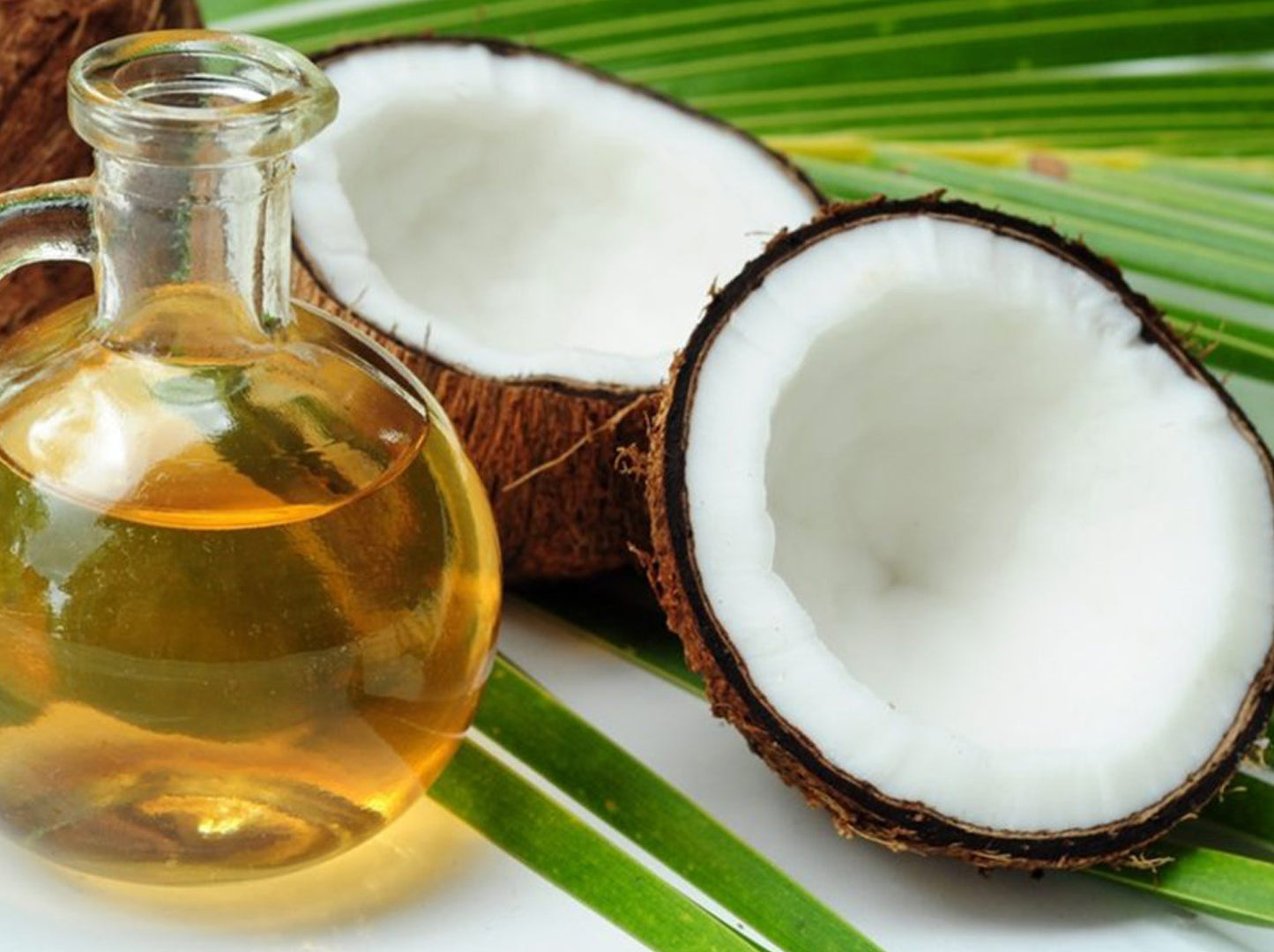
If you’ve ever had itchy, dry scalp or damaged hair, you know that treating your hair is a top priority. There are many treatments available for scalp and hair, but what if you want to take a more natural route? What are the benefits of coconut oil for your hair and scalp?
What's in Coconut Oil?
Coconut oil is extracted from the coconut and retains many beneficial ingredients. With a mild and sweet taste, coconut oil has natural properties that are helpful for your skin. Dermatologists often recommend coconut oil for its moisturizing and possible anti-aging properties.
Fat content. Coconut oil doesn’t have a high concentration of vitamins or minerals. It has a 100% fat content, with 80% to 90% of that content being saturated fat. This type of fat is a “bad” fat for your diet, but it gives coconut oil firmness not found in other oils. In fact, coconut oil is solid at room temperature, and it begins to melt at around 78 degrees Fahrenheit.
Fatty acids. Lauric acid makes up 47% of the fatty acids in coconut oil. When ingested, lauric acid can contribute to bad cholesterol levels in your bloodstream. When applied to your skin, lauric acid has antimicrobial properties. If you have an open wound, coconut oil helps to kill bacteria, preventing them from causing further damage.
If you’ve ever had itchy, dry scalp or damaged hair, you know that treating your hair is a top priority. There are many treatments available for scalp and hair, but what if you want to take a more natural route? What are the benefits of coconut oil for your hair and scalp?
What's in Coconut Oil?
Coconut oil is extracted from the coconut and retains many beneficial ingredients. With a mild and sweet taste, coconut oil has natural properties that are helpful for your skin. Dermatologists often recommend coconut oil for its moisturizing and possible anti-aging properties.
Fat content. Coconut oil doesn’t have a high concentration of vitamins or minerals. It has a 100% fat content, with 80% to 90% of that content being saturated fat. This type of fat is a “bad” fat for your diet, but it gives coconut oil firmness not found in other oils. In fact, coconut oil is solid at room temperature, and it begins to melt at around 78 degrees Fahrenheit.
Fatty acids. Lauric acid makes up 47% of the fatty acids in coconut oil. When ingested, lauric acid can contribute to bad cholesterol levels in your bloodstream. When applied to your skin, lauric acid has antimicrobial properties. If you have an open wound, coconut oil helps to kill bacteria, preventing them from causing further damage.
How Does Coconut Oil Improve Hair and Scalp?
Provides a barrier. Even though coconut oil doesn’t have a high nutrient content that provides specific benefits when applied topically, it does protect your scalp and hair. For the scalp, the barrier created by coconut oil blocks bacteria and irritants from causing more damage. You’ll want to determine the cause of your scalp condition or breakage so you can prevent it in the future.
Moisturizes. The lauric acid in coconut oil has nourishing properties that are especially prone to soak into the strands of your hair. Coconut oil absorbs into your hair quickly, providing moisture to tame frizz and heal breakage.
Pros of Coconut Oil as a Shampoo
No chemicals. You know exactly what’s in coconut oil. With no additives, it’s safe for use around your face and for ingestion. Babies' and children’s skin is especially sensitive. Shampoos with medicated ingredients may irritate their skin. If your baby or young child needs something for scalp care, coconut oil is a safe option.
elieves symptoms. Studies show that coconut oil is effective at reducing symptoms of scalp psoriasis. While it cannot heal the condition, it does provide relief from symptoms of scalp irritations.
Moisturization. In addition to being good for your scalp, coconut oil also moisturizes your hair. Since it’s easily absorbed, it works better than other oils at repairing dry hair. Keep in mind that coconut oil alone may not be effective as a shampoo to cleanse hair, but as a pre-shampoo treatment, it will condition hair. After you treat your hair with coconut oil, use your regular shampoo to wash it out.
Cons of Coconut Oil as a Shampoo
Limits of effectiveness. If you have a more severe scalp condition, you may need medicated shampoo for treatment. Coconut oil as a shampoo treatment has limitations since it has no active ingredients. If your symptoms continue without improving, talk to your doctor.
Potential allergic reactions. While coconut oil is safe for hair and skin, there’s always the possibility of an allergic reaction. If you apply coconut oil to your scalp or hair and notice signs of an allergic reaction, stop using it and call your doctor immediately.
source: webmd.com
